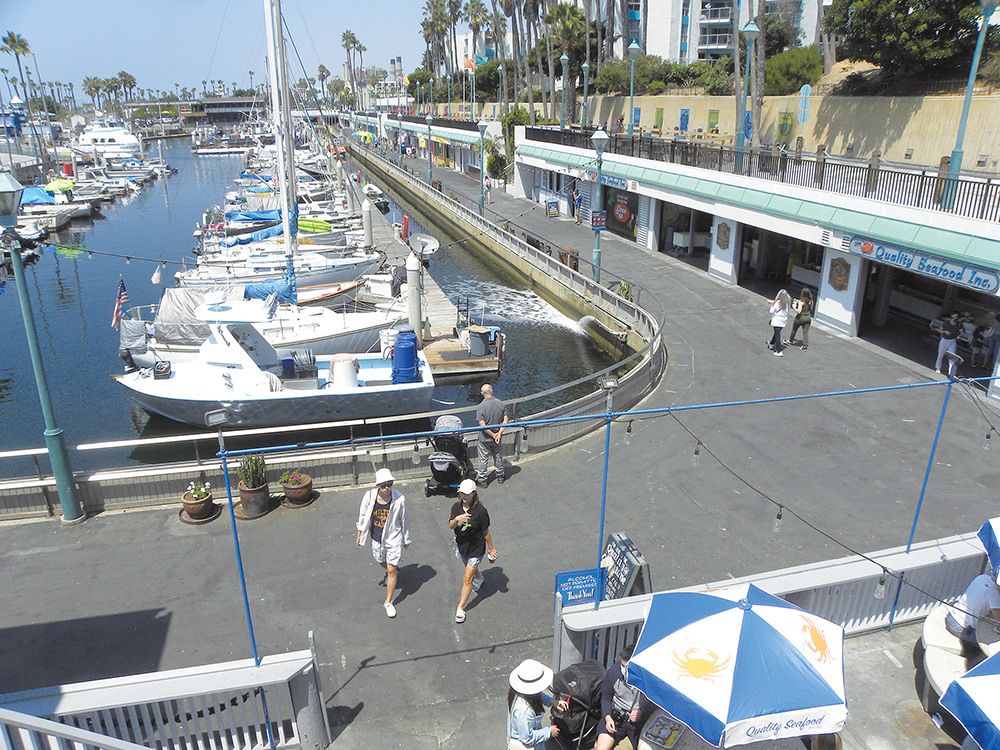Council discussion: Redondo trails its peers in sales tax revenue
by Garth Meyer
A city audit report March 12 drew praise from the Redondo Beach city council about pension funds, and brought on a discussion about improving sales tax revenue.
The 2022-23 audit showed the city with its highest reserves in 10 years, and its former $200 million in PERS (California Public Employees Retirement System) pension obligations cut to $22 million. The city refinanced its PERS obligation two years ago from 7% to 2.7% by issuing $220 million in bonds.
The action is expected to save Redondo Beach more than $100 million over the next 30 years.
“We’re not out of the woods,” said Mike Witzansky, city manager. “It’s an ongoing battle with PERS and how (investments) perform year to year.”
City reserves stand at $33 million.
Councilmember Paige Kaluderovic pointed out that city revenue is up just six percent over 10 years, well below the increases in neighboring cities.
“That is reflective of us not capitalizing on potential business in the city,” she said. “I think we need to (talk) about revenue.”
The comment elicited agreement from others on the council.
(Hermosa Beach sales tax revenue is up 36% over the past 10 years, according to Hermosa Finance Director Viki Copeland. Manhattan Beach Finance Director Steve Charelian reports they are up 23%. Torrance is up 137% in the past nine years – the number inflated by an extra ½-cent raise in sales tax over the past two years, without which the increase would be 82% — according to Torrance Finance Director Sheila Poisson.)
Kaluderovic said that Redondo Beach cannot pay workers competitively, for example, for its after-school program. City Manager Witzansky noted that hiring part-time workers has changed dramatically in the past five years because of a new state minimum wage law.
Councilman Todd Loewenstein offered a word on sales tax, “Amazon,” and went on to say that a major part of Redondo Beach city revenue previously came from South Bay Galleria. “But the last six years, it’s been devastated, basically,” he said.
Witzansky added that South Bay Galleria sales tax revenue is roughly 20 percent what it was at its peak in the late ’90s/early 2000s, not adjusted for inflation.
Councilman Nils Nehrenheim said local sales tax revenue has also been hurt by commercial property being converted to residential use. He cited as examples the Legado and One South mixed-use developments in South Redondo.
“Property tax has been our saving grace these last few years,” Witzansky said.
“How encouraging are we to businesses?” Kaluderovic said to Easy Reader later. “Why do businesses not want to do business in Redondo Beach? We shouldn’t be so lagging behind our neighboring cities.”
Mayor Jim Light said one factor in this is that the city “bought all the leases in the harbor (including Ruby’s, On The Rocks, Samba’s and the former Fun Factory) over the past 10 years because it wanted to re-lease it to a master leaseholder.” The city previously planned to redevelop the harbor through a public-private partnership with CenterCal Properties.
“It put the Pier on short-term leases. When you’re on a short-term lease, you’re not going to invest in your business,” Light said.
The mayor sees progress on this, though, since the outstanding CenterCal lawsuit was settled last year.
“We’ve got a lot of things going on (to address sales tax revenue),” he said, noting a Floor Area Ratio increase on Artesia Boulevard — pending environmental review and voter approval — the California Beach Club under construction on the waterfront (using the former Ruby’s and On the Rocks buildings), and South Bay Social District on the horizon at South Bay Galleria. The city also has a potential new tenant for the former Fun Factory space on International Boardwalk.
“I think things are already in motion to address that sales tax loss,” said Light, who was a longtime harbor commissioner before being appointed to lead the city in February after the death of Bill Brand.
“The fabric of a community is zoning,” Councilman Nehrneheim said. “The ramifications of zoning come in sales tax revenue.” ER


